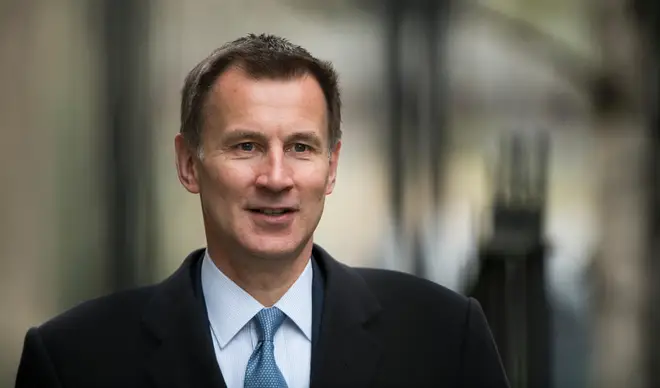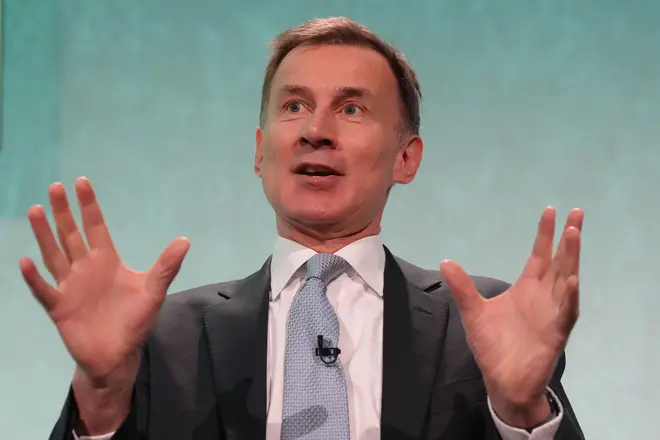
Tonight with Andrew Marr 6pm - 7pm
27 February 2024, 00:16 | Updated: 27 February 2024, 08:16

Stamp duty cuts should be "front of the queue" for Jeremy Hunt to boost growth in next week's Budget, experts say today.
The influential Institute for Fiscal Studies warned the Chancellor against making huge tax cuts at what could be the largest Budget before the election.
They said the public finances were too precarious and he must spell out how he will pay for them first with a spending review - or they will hit public services later on.
But Tory MPs are urging him to slash taxes from a huge post-war high in a bid for a pre-election sweetener to woo back voters.
The Chancellor should prioritise stamp duty cuts instead of going for National Insurance or an income tax cut as it would boost growth more, the think tank said.
Their economist Carl Emmerson said: "If you cut income tax or rates of national insurance, that can be good for growth - but you can do better than that.
"We have lots of taxes that are really flawed and in need of reform... we still have stamp duty on certain purchases which are very badly designed taxes."
The last Autumn Statement announced plans to slash National Insurance - but pencilled in spending cuts for the end of the period to pay for them instead.
The IFS says today that the Chancellor will have an extra £11billion to play with thanks to lower than expected borrowing - partly due to a fall in inflation.
But their chief, Paul Johnson, said he expected that we would see some "politically driven choices" to take centre stage in this election year.
Read more: Rishi Sunak sets out 'transformational' £4.7bn 'local transport fund' from HS2's axed northern leg
Read more: Sadiq Khan accuses Rishi Sunak of 'enabling anti-Muslim hatred' in the Conservative Party
Reports have suggested that he is weighing up cutting public spending further to pay for more tax cuts.
But the think tank also said that thanks to the income tax thresholds dragging more people into higher rates, taxes will still be higher at the end of the Parliament by around £66billion compared to 2019.

Ministers are also still spending £112billion a year on serving our own debt - severely limiting the amount of cash he can spend.
And rates are still very volatile, they warned.Public sector net debt will only just be on course to fall in the next five years too, he warned.
LBC understands inheritance tax cut plans have also been shelved.
Factoring in spending plans for the NHS, defence, schools and childcare means that other unprotected departments could see cuts of £20billion a year by 2028-29.Investment spending is also set to be slashed.
Martin Miklos, research economist at the IFS, said: "In November's autumn statement, the Chancellor ignored the impacts of higher inflation on public service budgets and instead used additional tax revenues to fund eye-catching tax cuts.
"At next week's Budget, he might be tempted to try a similar trick, this time banking the higher revenues that come from a larger population while ignoring the additional pressures that a larger population will place on the NHS, local government and other services.
"He might even be tempted to cut back provisional spending plans for the next Parliament further to create additional space for tax cuts.
"The Chancellor should resist this temptation. Until the Government is willing to provide more detail on its spending plans in a spending review, it should refrain from providing detail on tax cuts."
A spokesperson for the Treasury said: "Our responsible action with the public finances meant we could cut taxes for working people and businesses in the autumn statement. We will not comment on speculation over whether further reductions in tax will be affordable in the Budget.
"We are on track to meet our fiscal rules and total departmental spending will be £85 billion higher after inflation by 2028-29 than at the start of this Parliament, including record funding for the NHS."